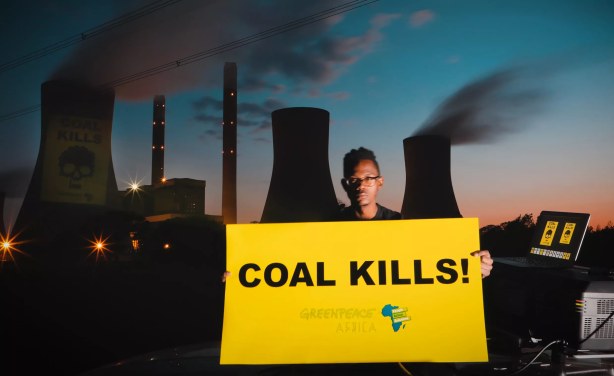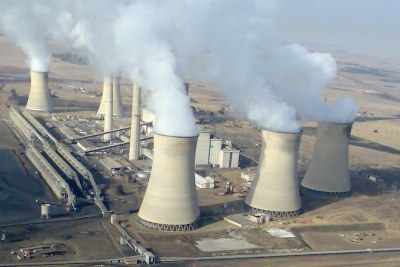-
South Africa: 'Deadly Air' Case Finally Goes to High Court
GroundUp, 17 May 2021
Over 100 people picketed outside the Pretoria High Court on Monday to show solidarity with the "Deadly Air" case, which had its first day of court proceedings. Read more »
-
South Africa: Toxic Environment - Heavy Industry and Eskom Power Imperatives 'Cannot Trump People's Rights to Healthy Air', Court Hears
Daily Maverick, 17 May 2021
Heavy industries and Eskom power stations on the Highveld play a vital role in sustaining South Africa's economy, but this cannot be used to justify the excessive levels of air… Read more »
-
South Africa: 'Deadly Air' Case Highlights Health Risks From Coal
HRW, 14 May 2021
Environmental Groups Hope Case Will Force Government Action on Emissions Read more »
-
South Africa: Pollution Adds to Covid-19 Deaths, Say Scientists
New Frame, 5 November 2020
Experts have linked around 15% of Covid-19 deaths worldwide directly to comorbidities caused by exposure to high levels of air pollution. This figure is higher, at 18%, in South… Read more »
'Deadly Air' Case Finally Goes to South African High Court
Heavy industries and Eskom power stations on the Highveld play a vital role in sustaining South Africa's economy, but this cannot be used to justify the excessive levels of air pollution that 'kill 10,000 people each year', environmental justice groups argued in the Gauteng High Court.
Advocate Steven Budlender SC made this point at the start of the landmark legal case on industrial air pollution, which seeks to compel the government to introduce tougher regulations within six months to reduce the overall level of air pollution levels in parts of Gauteng and Mpumalanga known as the Highveld Priority Area.
Mpumalanga, home to 12 of Eskom's coal-fired power stations, was ranked among the world's worst hotspots for nitrogen dioxide and sulphur dioxide emissions by Greenpeace in 2019. The Deadly Air case comes as South Africa prepares to submit its latest draft Nationally Determined Contribution, the country's pledge to reduce greenhouse gas emissions and meet the goals of the Paris Climate Agreement.
Any meaningful commitment will entail South Africa taking tangible steps to move away from its coal dependency - South Africa's coal reliance places it in the top 15 worldwide largest emitters of greenhouse gases, and makes it one of the most carbon-intensive economies in the G20.
InFocus
-
According to Greenpeace, highly detailed satellite data has revealed that Mpumalanga Province in South Africa is the world's "worst" air pollution hotspot on the planet, due to its ... Read more »
-
The area around Kriel in Mpumalanga is now the world's second-biggest sulphur dioxide emissions hotspot, a study commissioned by Greenpeace India has found. According to data from ... Read more »

Mpumalanga is home to a cluster of twelve coal-fired power plants with a total capacity of over 32 gigawatts owned and operated by Eskom. The satellite data further reveals that the cities of Johannesburg and Pretoria are also highly affected by extreme NO2 pollution levels which blow across from Mpumalanga and into both cities due to close proximity and regular east winds (file photo).



